Parenting when you’re autistic
Parenting is never easy. There will always be difficult moments and conflicts. However, parenting when you’re autistic (or otherwise neurodivergent) can pose some specific challenges.
For example, managing your own life and wellbeing when you are neurodivergent (in a world designed for neurotypicals) can take a lot of time and energy. You might have periods of burnout, require rest or isolation, or have developed specific rituals and routines to balance your energy levels and avoid meltdowns. Being a parent puts huge pressure on our time and internal resources, which can easily squeeze out the time needed for energy management and self-care.
Many autistic people also have sensory challenges (they might feel overwhelmed by noise or touch, for example). Young children are frequently loud, demanding and unpredictable. Neurotypical parents with young children often experience feeling over-touched, over-demanded of or over-stimulated and crave space and solitude to reset. With heightened sensory sensitivities, this over-stimulation can quickly lead to anger or shutdown.
If you are autistic, it is also statistically more likely that your child will be neurodivergent too, which can pose additional challenges in terms of supporting your child to regulate their emotions or behaviour and supporting their education or mental health.
And there will be many more individual challenges for autistic parents in addition to these.
Now, I’m not autistic (though I do have experience parenting a neurodivergent child). So, to write this post, I turned to an expert – Dr Pooky Knightsmith – and her excellent new book Parenting When You’re Autistic: Tips and advice on how to parent successfully alongside your neurodivergence.*
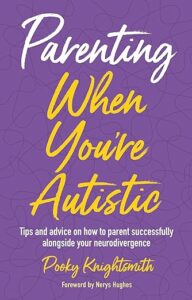
There is far too much detail in the book to summarise it all in this post, but here are a few takeaways:
Prioritise self-care
All parents should do this – but parenting when you’re autistic makes self-care even more important. Taking time for yourself benefits the whole family. When you are feeling balanced, and your own needs are met, it’s much easier to stay calm and enjoy your children. Make self-care a daily non-negotiable and don’t feel guilty about it.
Find your own unique ways to connect
It’s okay to do it your way. Embrace your own unique style of connecting. Find the activities that help you lean into enjoying your child and bonding with them, and do these often. Your child needs you, not some idealised version of you. And when you get it wrong, as we all do, forgive yourself, apologise and repair the rupture through connection once you are ready.
Embrace being a successful neurodivergent parent, not a failed neurotypical one. [Pooky Knightsmith, Parenting When You’re Autistic]
Use your strengths
You know yourself, your needs and your strengths better than anyone. Habits and characteristics that might be considered by neurotypicals to be unusual or unhelpful – such as unfiltered honesty, or using rituals to calm and restore, or a tendency to hyper-focus – can actually be huge strengths when it comes to parenting. Routines and predictability, for example, tend to make young children feel safe and secure, while tenacity and determination are valuable assets when you are advocating for a neurodivergent child.
Know your triggers
Understanding what is likely to send you shooting out of your window of tolerance is essential. When you are aware of your triggers, you can develop strategies to manage those moments and prevent overwhelm. This might mean attending to your physical needs for food/sleep, removing yourself to a calm safe space to avoid stressors, anticipating challenging moments (and having a plan for managing those) or having solid communication strategies with a partner in order to sidestep a meltdown. Notice patterns and act on them.
Don’t compare
The pressure for modern parents to do it all and get it all right is huge. The job description for being a ‘good parent’ has expanded beyond the possible. We feel like we are failing if we can’t persuade our children to eat broccoli, or we don’t take them to football, or we aren’t posting happy family photos of us all out on walks happy and smiling. These things really aren’t so important. Our children need our love and care and to feel safe and supported (see What children need most). And, despite what you might see on social media, most parents find parenting hard and many are struggling behind closed doors.
Manage anxiety
Parenting inevitably brings with it an awesome sense of responsibility and a big helping of fear. All parents worry about their kids, but autistic parents are likely to be starting from a higher baseline of anxiety (even before we throw parenting worries into the mix).
Becoming a parent necessitates navigating new situations and places, often outside of your comfort zone, and potentially alongside a child who is also prone to anxiety. Having go-to strategies for managing anxious thoughts and feelings is essential. And if you can role model these to your children, you will be helping to equip them with precious tools for thriving in the modern world and cultivating a positive mindset (whether they are neurodivergent or not).
As a neurodivergent parent, each day can be a challenge, but each day is also an opportunity to find joy in the little things too – to savour the tastes, sounds and experiences that make parenting an extraordinary adventure. [Pooky Knightsmith, Parenting When You’re Autistic]
There are lots more tips (and far better analysis!) in the book than I can possibly cover here. If you are parenting when you’re autistic (or, indeed, with any neurodivergence) this book is a fantastic resource – and I’d also recommend it if you are co-parenting with an autistic partner. Parenting When You’re Autistic by Pooky Knightsmith is available in paperback, e-book and audiobook. Pooky also has a blog, YouTube channel and podcast.
*All links to Amazon are affiliate links. This means that when you click through from this post and make a purchase, the Positive Parenting Project will receive a small fee (there is no additional charge to you). This enables us to keep providing free resources. You are, of course, welcome to purchase the book from whichever retailer you choose. See Disclosure Notice for more details.

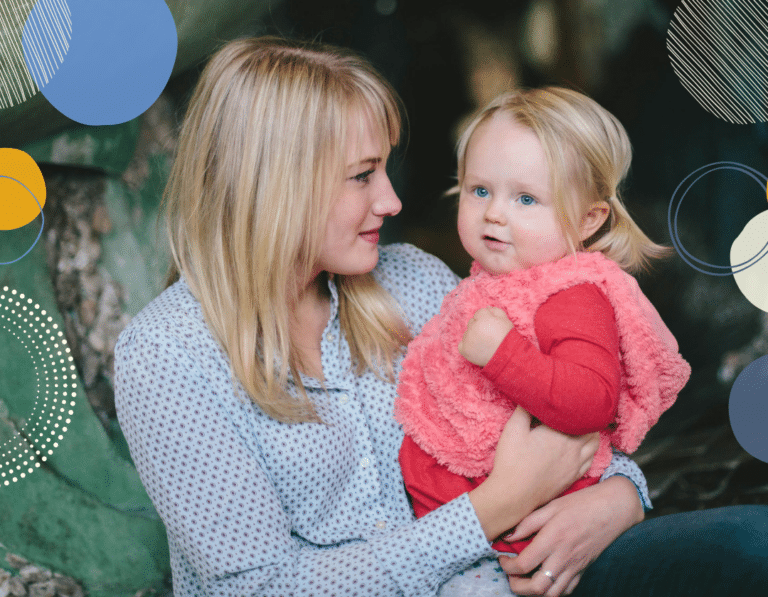

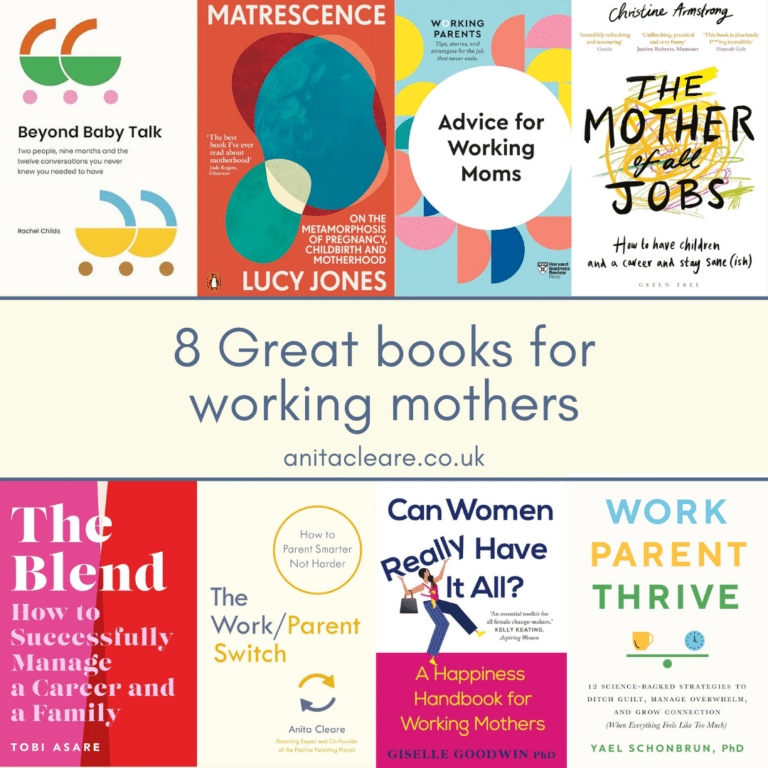

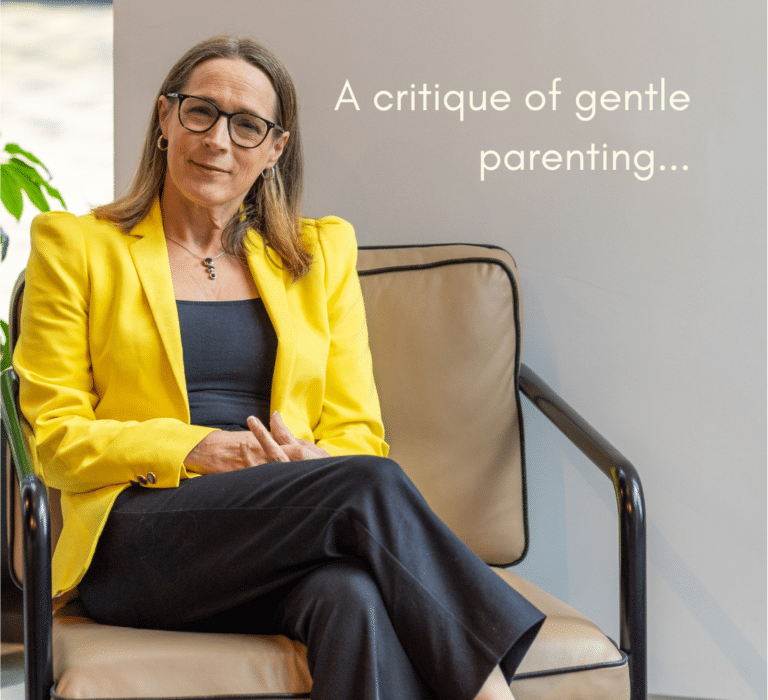
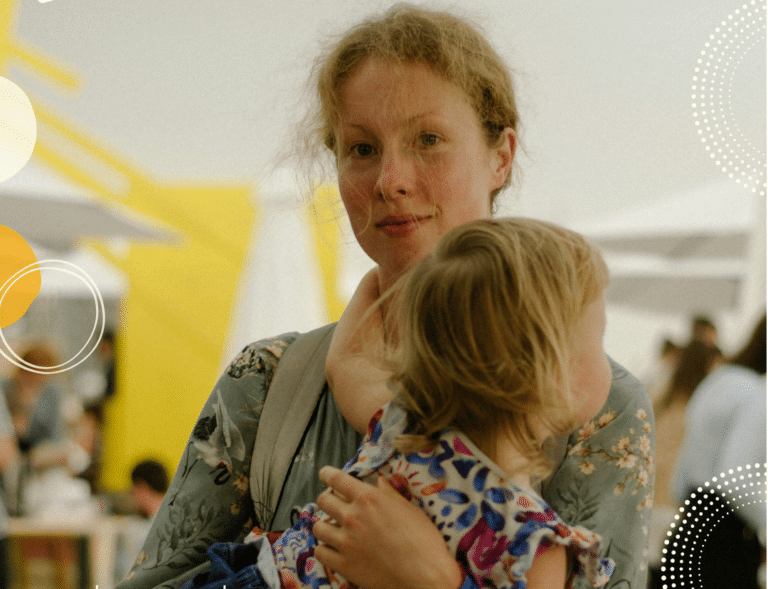
Leave a Reply